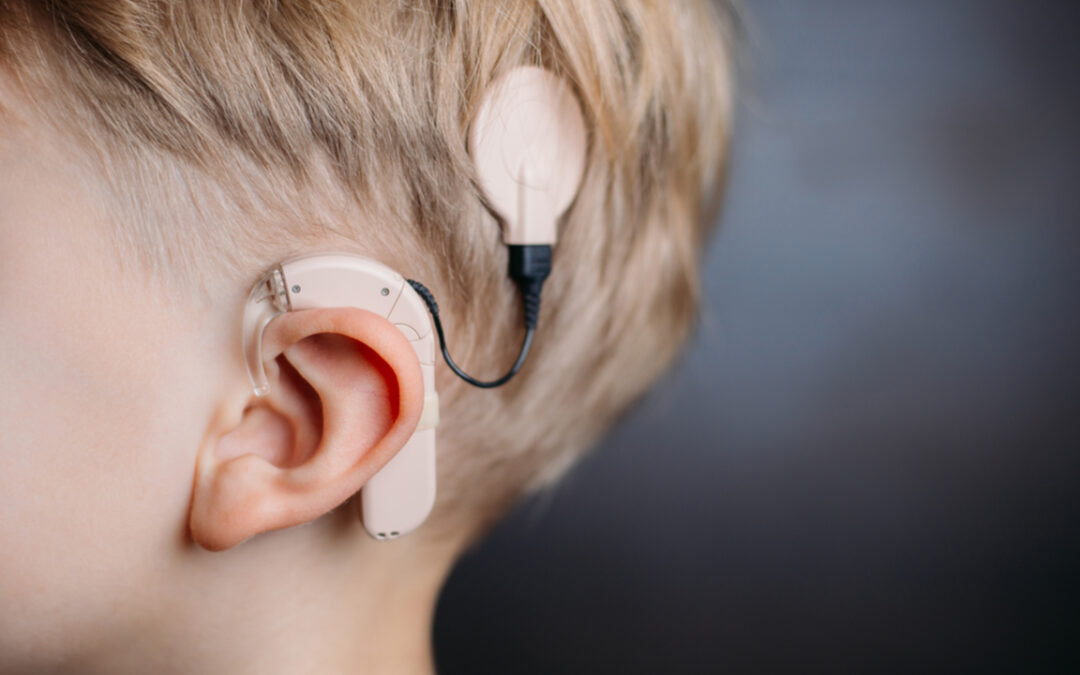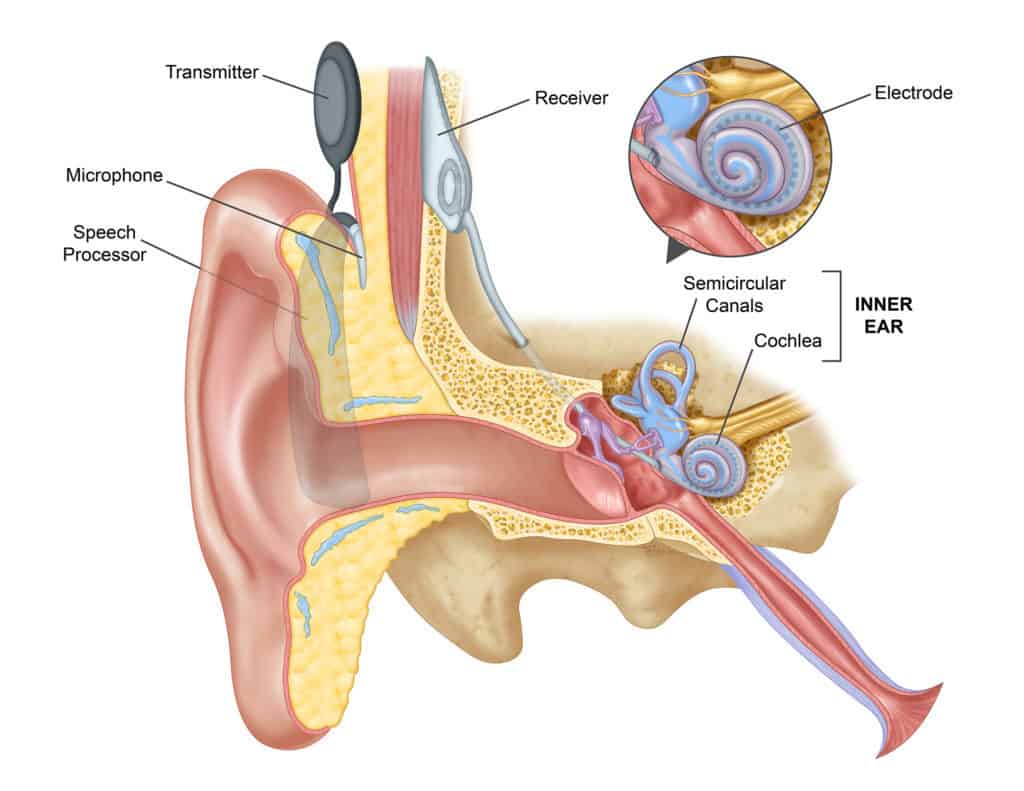A cochlear implant is a small, complex electronic device that partially restores hearing to the damaged parts of the ear. It utilises internal and external systems to help deaf people process sounds and speech.
This article will explain everything about cochlear implants, including how they work and their risks, and provide some valuable tips on wearing a cochlear implant.
So let’s get started!
Overview
A cochlear implant helps restore hearing caused by severe injury to the inner ear. Usually, people who need a cochlear implant find regular hearing aids to be of no use. This is mainly because these two devices work differently. Hearing aids amplify sound while cochlear implants communicate directly with the auditory nerve in order to produce sound and restore hearing.
Cochlear Implant Parts
The cochlear implant contains an external component that sits behind the ear and an internal device implanted under the skin through surgery. In addition, it has the following parts:
- A microphone — picks up an input speech signal from the surroundings.
- A speech processor — selects and arranges picked up sounds from the microphone.
- A transmitter and receiver — receives signals from the speech processor and moulds them into electric impulses.
- An electrode array — gathers the electrical impulses from the receiver and passes them to various regions of the auditory nerve.
How Does A Cochlear Implant Work?
Here’s how a cochlear implant works:
- It decodes sound through electronic messages received from the external device worn behind the ear.
- These electronic messages are processed and transmitted to the inner component placed at the auditory nerve.
- From here, the cochlear nerve transmits electronic sound patterns to the brain, where they can be identified as speech and partially restore hearing.
However, like any other new language, the implant recipient has to learn these sound patterns to identify and experience them as regular hearing.
Cochlear Implant Surgery Procedure
How To Prepare
Cochlear implant surgery is done under general anaesthesia. It means that you will be in a sleep-like state during the surgery. However, you might need to:
- Stop using specific medications/supplements for a certain amount of time.
- Avoid consuming food or drinking water for a certain amount of time.
Besides that, your doctor will give specific instructions to help you prepare.
Before The Procedure
Before proceeding, you will require a comprehensive medical evaluation to determine whether cochlear implants are the best option for you or not. Your doctor will conduct an assessment that may include:
- A physical examination of your inner ear.
- Tests of hearing, speech, and sometimes the sense of balance.
- CT or MRI imaging to determine the inner ear structure and cochlea condition.
- Psychological testing in some cases to determine a person’s ability to learn to use a cochlear implant.
During The Procedure
Your surgeon will make an incision behind your ear and a tiny hole in the portion of the skull bone where the internal component rests.
After that, they will create a small opening in the cochlea to thread the electrode of the internal component. Next, the skin incision is stitched closed so that the internal device is beneath your skin.
After The Procedure
After the cochlear implant surgery, you might experience:
- Pressure or discomfort over the implanted ears
- Nausea or dizziness
Usually, people feel well enough to return home the day of surgery or the next day. However, to give the surgery section some time to heal, an audiologist won’t activate the cochlear implants for about 2 to 6 weeks after your surgery.
Activation
In order to activate the cochlear implant, an audiologist will:
- Adjust the sound processor to fit you.
- Check the parts of the cochlear implant to ensure they work fine.
- Determine what sounds you hear.
- Set the device in a way that you will hear to the best of your ability.
- Provide you with the information on the proper care and use of the device.
Results
The results of the cochlear implant surgery vary from person to person.
For children, it would be beneficial if they get a cochlear implant at a young age. However, for adults, the best results are usually associated with a brief period of profound hearing loss before getting a cochlear implant. Meanwhile, adults with little or no familiarity with sound may benefit less from cochlear implants.
After getting a cochlear implant, some predicted outcomes may include clearer hearing and improved tinnitus (ear noise). Although ear noise (tinnitus) is not a fundamental reason to get a cochlear implant, the cochlear implant may partially suppress or improve tinnitus severity during use. In some cases, it can also worsen tinnitus severity.
Cochlear Implant Risks
Generally, cochlear implant surgery is considered to be safe, but there are some risks to be aware of:
- Possible loss of residual hearing.
- Possible meningitis (vaccinations are recommended).
- Occasionally, another surgery to fix a faulty device.
Rarely, post-surgery cochlear implant risks may include:
- Paralysis of the face
- Infection at the incision
- Problems with balance
Daily Cochlear Implant Use
You can remove the external system of your cochlear implant when you need to sleep or take a shower – without difficulty! The internal component is beneath your skin, so you don’t need to worry about being uncomfortable or getting it wet.
It is recommended to remove the device before bed as it can make sleeping uncomfortable and could fall off or get damaged. Furthermore, if you like swimming, you should opt for a waterproof device (you can discuss this with your cochlear plant audiologist).
Summing Up
Cochlear implants can partially restore hearing and are most often beneficial for children. However, speech and everyday environmental noises will sound different from what you remember. Your brain needs time to recognise what these sounds mean. This ongoing process is best achieved if you continually wear the speech processor during your waking hours.
Don’t forget to consult with an audiology specialist and ask them all the related questions to determine if a cochlear implant is right for you.




Recent Comments